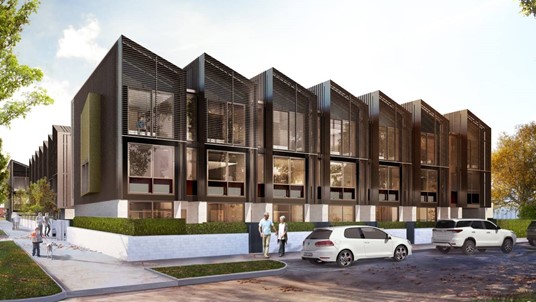PC78- Does it have legs again?
In short, not really. A small part of PC78 is progressing, but most is still on hold. And those parts on hold are still caught in a confusing cycle of interrelated but separate processes and timeframes. As we enter the second quarter of 2025 and three years since the notification of PC78, there are still a lot of unknowns. If you’re waiting on the outcome of PC78 for your subdivision or land development in Auckland, read on! We’ll provide you with a useful summary of where things are now up to and what’s next.
What is Plan Change 78?

Plan Change 78 is Auckland Council’s intensification plan change- including changes required by the National Policy Statement on Urban Development (NPS- UD) and incorporating the Medium Density Residential Standards (3 houses, 3 stories high etc), also called the MDRS. You can find out more about the background here.
What’s the holdup?
There are three main issues affecting the progression of PC78. In summary these are:
- A plan change related to what was to be the Auckland Light Rail Corridor. This land had purposely been left out of PC78 as it was to be the subject of a future plan change when the location of the corridor, stations and surrounding land uses were better known.
- The 2023 change on central government resulted in the new coalition confirming the light rail project was cancelled. This meant that Auckland Council had to go back to the drawing board about how this land should be developed.
- A plan change related to natural hazards. Following the flooding events in 2023 (and some further flooding last week) it became clearer that some areas were not suitable for development, and that more controls on development potentially affected by natural hazards was required. Auckland Council indicated that a plan change was proposed to address these natural hazards issues, and that it would potentially have immediate legal effect on notification[1].
- The coalition government confirmed that the Medium Density Residential Standards (MDRS) are to become optional, rather than mandatory. The Bill relating to this (the Resource Management (Consenting and Other System Changes) Amendment Bill (we’ll refer to this as the “Amendment Bill” for the rest of this blog)) is currently making its way through parliament.
These mandatory MDRS provisions account for a large part of PC78. Once central government makes the required legislation changes to make the MDRS optional, it’s almost certain Auckland Council will alter Plan Change 78 (likely withdrawing at least part of it) and remove or downzone some areas originally required by the MDRS to be upzoned.
You can find out more about the background in our previous blogs here and here.

What are the timeframes?
This should be an easy answer, but unfortunately, it’s not. The different legislation and the Amendment Bill affecting PC78 along with the future plan changes are all going through different processes, and these have different timeframes. The timeframes can also change, as the progress/ decisions on one will affect the other.
For example, the legislation making the MDRS mandatory hasn’t actually been changed yet. The Amendment Bill seeks to change it, but that’s not law yet. That means at the moment, the existing legislation and related dates remain, but it’s likely those will change. Even more difficult is that the existing legislation dates are fast approaching- it’s likely those dates (see below) and the Amendment Bill becoming law will be close together. This makes it very hard for the Independent Hearings Panel (IHP), Auckland Council, and submitters on Plan Change 78 to know how to progress in the interim.
So, what dates do we actually have?
We do have some dates, but these are likely to change (so watch this space!)
- Previously the Minister Responsible for RMA Reform Hon Chris Bishop, required that Auckland Council notify a plan change relating to intensification of the previous Light Rail Corridor and to address the management of natural hazards, by 30 April 2025. This timeframe has now been removed, but at this stage the Minister has confirmed upzoning work within the Light Rail Corridor is still required. The Council is also still progressing work related to natural hazards management, in conjunction with expected national level legislation changes.
Auckland Council has requested a bespoke solution for Auckland, which would allow the withdrawal of Plan Change 78 in part, and the notification of a new comprehensive plan change giving effect to intensification directives and addressing natural hazard management for the region[2]. This hasn’t however bene confirmed at this stage.
- PC78 is essentially being split in terms of process. Those intensification aspects that relate to the National Policy Statement on Urban Development Policy 3a) will still be progressed where possible. You can find out what this policy refers to here. The second part of PC78 relates to the MDRS aspects, and upzoning of other land. This is the part that’s likely to change, and some land downzoned.
Under the existing legislation, Auckland Council needs to make a decision on Plan Change 78 by 31 March 2026. While the amendment bill is likely to change this, this is the date everyone has to work to at the moment. Auckland Council has suggested[3] it’s likely to have a better understanding on which, if any, PC78 hearing topics still need to progress around mid-June 2025. This is when the Environment Select Committee is due to report back to Parliament on the Amendment Bill.
Auckland Council has therefore suggested that PC78 hearings recommence in September 2025 at the earliest. This provides a short period before the 31 March 2026 deadline, indicating that either the Council will be very busy with hearings over that time, or an expectation that large parts of PC78 will be withdrawn and the number of hearings required will be much reduced. We’ll have to wait and see what happens here.
What does this mean for you?
If your development is relying on PC78, there is still a lot of uncertainty about timing and what will be in the altered version of the plan change or a potential new plan change. This is particularly the case if you’re relying on upzoning enabled by the MDRS, as its highly likely the extent and nature of the development enabled will change. Auckland Council have been very vocal from the start of this process that they felt the Auckland Unitary Plan already provided for sufficient growth, and the ad hoc development enabled by the MDRS would create issues, in particular in relation to infrastructure.
If you’re relying on changes related to the NPS- UD, there is less risk. Discuss this with your planning consultant Auckland.
Existing Auckland Unitary Plan
In many locations however the Auckland Unitary Plan already enabled more development, including multiple houses, terraced houses, apartments and minor dwellings. A resource consent application can still in many cases be successful under the existing zone provisions. Early advice from an experienced planner will ensure you fully understand the opportunities for your site, and how to increase your chances of a successful resource consent process.
Need planning advice you can trust?
With over 35 years of combined experience processing resource consent applications, including being a current planning consultant to Auckland Council, we have significant experience on both sides of the fence. We draw on this experience to help you navigate the Auckland Council resource consent process and provide a development feasibility study to get the best outcome.
Contact us on (09) 427 9966 or hello@planningplus.co.nz to discuss your development goals.
[1] Auckland Council Memorandum of counsel dated 18/4/2024.


